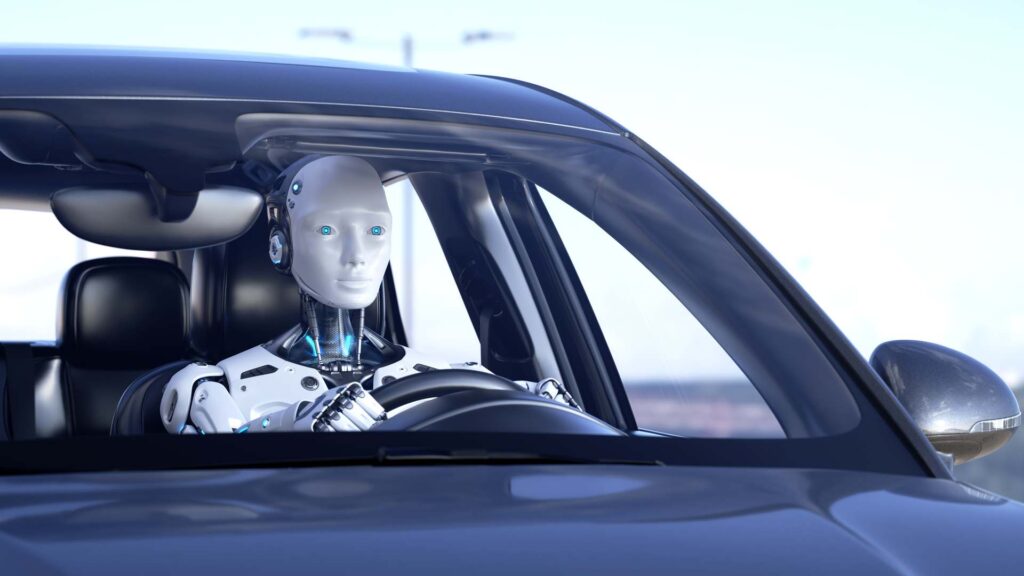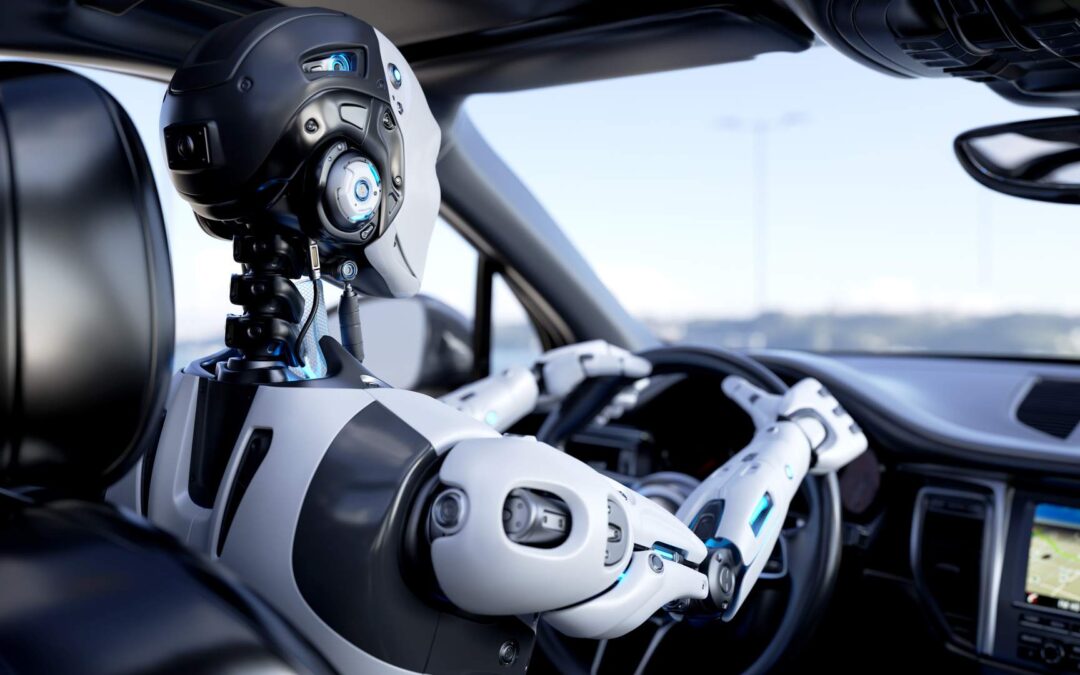The emergence of autonomous vehicles (AVs) presents new challenges and opportunities in transportation law. Especially as these vehicles become more common on the roads of Georgia. This blog explores the multifaceted legal landscape that governs self driving car accidents in the state, offering insights into liability issues, insurance policies, and regulatory frameworks that are specific to Georgia.
Overview of Autonomous Vehicles in Georgia
Autonomous vehicles, often referred to as self driving cars, employ advanced robotic technologies to navigate and operate without human input. These vehicles range from partially autonomous to fully autonomous systems. Georgia has been at the forefront of testing and deploying these technologies, reflecting a broader national trend towards embracing automated transportation solutions.
Georgia’s Legislative Framework
Georgia’s approach to autonomous vehicles is encapsulated in several legislative measures that seek to promote the adoption of this technology while ensuring public safety. One of the primary statutes is the Hands-Free Georgia Act, which, while primarily addressing the use of mobile devices, also touches upon autonomous vehicle operation standards. Additionally, specific regulations that govern the testing and use of AVs on public roads have been established.
Liability in Autonomous Vehicle Accidents
As self driving cars become more popular on the roads of Georgia, understanding the complexities of liability when accidents occur becomes critical. Unlike traditional vehicles AV accidents introduce a new set of technological and human factors that complicate legal responsibility. The determination of fault in such incidents is a multifaceted issue. Involving not just the actions (or inactions) of human operators but also potential failures in software, hardware, and the broader systems that support these advanced vehicles. This makes the legal landscape surrounding AV accidents particularly intricate, as liability may extend beyond the drivers to include manufacturers, software engineers, and other associated service providers. This situation is further nuanced by Georgia’s legal stance on comparative fault. Which accommodates the shared responsibilities often inherent in AV-related mishaps.
Determining Fault
The legal implications of car accidents involving autonomous vehicles are significantly complex due to the nature of the technology. Traditional vehicular accidents typically involve human error, but with AVs, fault may lie with various parties:
- The manufacturer of the vehicle or software, especially if a defect in the technology caused the accident.
- The human operator, if there was one, who may have failed to override a malfunctioning system.
- Other entities, such as software developers, third-party service providers, or even cybersecurity firms responsible for safeguarding the vehicle’s operational integrity.
Georgia’s Modified Comparative Fault Rule
Under Georgia law, the modified comparative fault rule applies, where a party can recover damages if they are less than 50% responsible for an accident. This rule is particularly relevant in AV accidents where multiple factors and parties could contribute to the incident.
Insurance Implications for Autonomous Vehicles
The rapid advancement and deployment of autonomous vehicles (AVs) bring a new need to re-evaluate traditional insurance models. Particularly in a state like Georgia where the existing vehicle insurance framework is primarily fault-based. As AVs blur the lines of typical vehicle operation and control, insurance companies are prompted to develop innovative insurance models that can address the complexities introduced by autonomous technology. These new models must consider who is actually insured. The owner, the operator, or potentially even the manufacturer of the vehicle. Furthermore, the issue of liability becomes significantly more complex in scenarios where human control is minimal or entirely absent. This shift challenges traditional notions of responsibility and risk, requiring insurers to redefine how policies are structured and liability is assessed. The evolution of these policies in Georgia will likely set precedents for how insurance for autonomous vehicles is handled nationwide, adapting to the unique legal and practical challenges these vehicles present.
Insurance Policies
The evolution of autonomous vehicles necessitates changes in traditional insurance models. In Georgia, vehicle insurance follows a fault-based system. However, with AVs, insurance companies are exploring new models that address unique aspects such as:
- Who holds the insurance policy—the owner, operator, or manufacturer?
- How liability is determined in scenarios where human control is minimal or non-existent.
Regulatory Changes
State regulators are actively discussing adjustments to insurance regulations to better align with the realities of autonomous driving technology. These changes may include requirements for higher coverage limits or new types of policies that are specifically designed for AVs.

Regulatory Framework and Compliance
Safety is the cornerstone of the regulatory approach to autonomous vehicles (AVs) in Georgia. The state’s Department of Transportation (GDOT) plays a pivotal role in setting and enforcing safety standards. Their goal is to help ensure that all AVs comply with stringent requirements before they are deemed roadworthy. This collaboration extends to national safety organizations and regulatory bodies, aligning state regulations with federal guidelines to create a coherent national strategy for AV safety. Continuous updates to these regulations are necessary as AV technology evolves, reflecting new safety data and technological advancements. The emphasis on safety is aimed at both protecting the public and fostering public trust in this new form of transportation.
Testing and Deployment
Georgia has established specific protocols for the testing and deployment of autonomous vehicles to manage this emerging technology responsibly. Companies looking to test or deploy AVs in Georgia are required to undergo a rigorous registration process that includes proving they have sufficient insurance coverage. This insurance is crucial as it provides a financial safety net in case of accidents, protecting both the companies and the general public. Moreover, these entities must adhere to detailed reporting obligations, particularly in the event of any accidents involving their AVs. This reporting is critical as it allows state authorities to collect data on incidents. Which can inform further regulatory or legislative adjustments. The state uses this information to refine its approach to AV regulation continually. This helps ensure that the legal framework remains robust and responsive to the dynamic nature of autonomous vehicle technology.
Future Legal Considerations Of Self Driving Cars
As autonomous technology progresses, so must Georgia’s legal frameworks. Legislators are tasked with staying ahead of technological advancements. This ensures that laws remain relevant and effective in governing AV operations. Upcoming legislation will need to address how AI-driven vehicles make decisions in complex traffic scenarios. These decisions may involve ethical considerations previously uncharted in vehicular law. For instance, laws may need to outline standards for programming potentially life-and-death decision-making processes within AV systems. The goal is to create a legal environment that supports innovation while ensuring safety and accountability.
Public Perception and Legal Trust
Building and maintaining public trust is crucial for the adoption of autonomous vehicles. Transparency in legal processes and clear regulations are foundational to this trust. The legal system must be visibly prepared to handle any disputes or accidents involving AVs. This preparation involves publicizing how AV-related cases are resolved and ensuring fairness and accessibility in legal proceedings. Clear, consistent communication from legal authorities can help demystify the technology and its governance. Public engagement and education will play key roles in this process, helping to alleviate concerns and boost confidence in the systems governing autonomous transportation.
Conclusion
Navigating the legal aspects of self driving cars in accidents requires a deep understanding of both the technology and the specific legal frameworks in place. As AVs continue to evolve, so will the legal strategies and regulations designed to ensure their safe integration into society. Legal professionals, lawmakers, insurers, and the public must work collaboratively to address these challenges and harness the benefits of autonomous vehicles while minimizing risks and liabilities.

